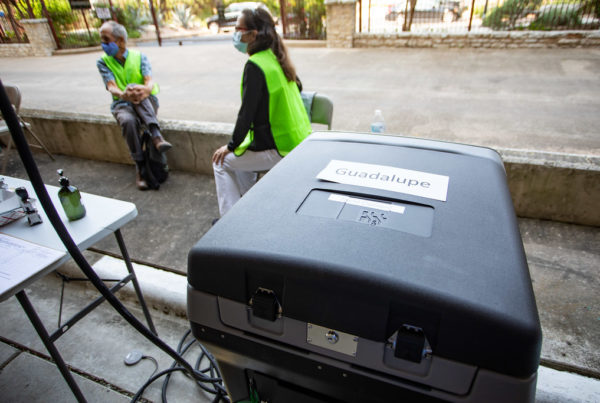COVID-19 is a new disease; it literally comes from a new, or “novel,” coronavirus, and there’s a lot experts still don’t know about it. One major thing is its long-term effects.
But experts do know that for thousands of people who’ve transmitted COVID-19, it has become a chronic condition known as “Post-COVID Syndrome.”
Dr. Esther Melamed is an assistant professor in the Neurology Department at the University of Texas at Austin’s Dell Medical School.
What is Post-COVID Syndrome?
“People who have been sick with COVID, some of them, up to about a third of people who had had COVID continue to have symptoms such as headaches or very severe fatigue, muscle pains, trouble with their mood and other symptoms for weeks or months even after their initial infection.”
Can people have Post-COVID Syndrome after they are no longer infectious?
“Very much so. Our immune system is able to fight off the virus, but there may be long-lasting symptoms because of the inflammatory response that continues on even after the virus has been cleared from the body.”
Is it the people who had the most serious COVID-19 symptoms who get Post-COVID Syndrome?
“That does seem to be the case that people who have had more severe illness may have more difficulty recovering in the long term. For example, people who have been in the ICU and had lung damage or heart damage may have persistent difficulties for several months. And that’s something that can happen with many other viral infections or other serious medical conditions – that post-ICU care; it takes people some time to recover. However, there are also studies suggesting that people with even mild symptoms may go on to have persistent symptoms and not quite be able to go back to their baseline after they’ve cleared the virus.”
Is there evidence some people might never fully recover from COVID-19?
“We don’t know that. We will definitely need to continue to monitor. This is a novel virus; we haven’t seen one quite like it. However, there definitely is evidence from other viral infections like [the] H1N1 epidemic. We saw that, for example, in kids for some time after the infection, there were neurological complications like seizures after that kind of virus. And for some, that’s resolved. For a virus like SARS-CoV-1 – so, the first SARS virus – there are studies looking out at two years showing that people may have persistent lung symptoms, but it is definitely – we don’t know.”
What are doctors trying to learn next?
“We are monitoring people for improvement in their underlying symptoms, but also keeping really a keen eye on any other emerging symptoms and trying to see if there may be emergence of new conditions. So we’re definitely seeing the emergence of diabetes and emergence of high blood pressure and autoimmune diseases, both Kawasaki-like disease in kids as well as demyelinating diseases in adults. We’re doing lab studies to try to identify if there are new emerging diagnoses for patients. Are there and your endocrine abnormalities? Are there new infections that people could become infected with when they get the virus? You know, we’re heading into the flu season now. And the recommendation that I give to my patients is to be on the lookout for new symptoms, to make sure that people are continuing to manage their diseases that they had prior to COVID, and we’re doing our best to identify these diagnoses and to treat.”














